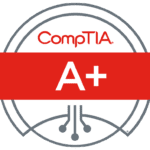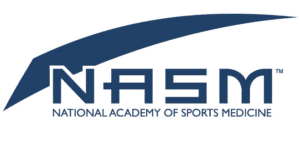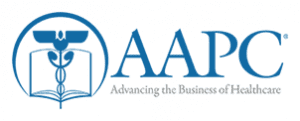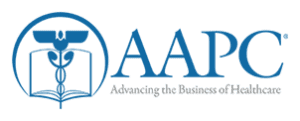Professional Education & Workforce Development
It’s all about progression
Professional Education & Workforce Development (PEWD) provides learning opportunities for professional growth and career advancement and seeks to enrich the lives of community members.
We believe that where growth ends, decline begins — so we offer programs and services with the continued progression of our community top-of-mind.
We leverage expertise within and outside Park University to provide meaningful and innovative courses and programs. Whether you’re in need of professional education credits, workforce skills training, or supplemental education to keep your professional degree current, the PEWD program has a solution tailor-made for you.
Our offerings may be taken as stand-alone courses for continuing education credits, or in some cases our courses may be applied toward the completion of a certificate or degree program at Park University.
Invest in yourself
Businesses face a variety of obstacles every day, but by being a growth minded employee, you can create a positive impact on your organization. Organizations need employees who think strategically, collaborate effectively and adapt quickly, YOU are that employee. Allow us to help you bring your highest potential to light.
Talk to your employer
Park University’s vision is to meet learners’ needs for a lifetime. Short, skill-based training at your fingertips means a smaller but more impactful and immediate return for your company. Let’s work together with your organization to keep you learning.
Career Training Programs & Classes
Online Bootcamp Courses
Cybersecurity Bootcamp
Across nearly every industry, cybersecurity skills are in demand to ensure the secure handling of data online and protect it from attacks, amongst other essential duties.
This online Cybersecurity Bootcamp is designed to empower the next generation of cybersecurity professionals to tackle advanced and critical threats. No previous experience is needed—just your dedication and eagerness to learn. By the end of your Bootcamp, you will gain the fundamental skills and knowledge needed to succeed in IT security and earn today’s most sought-after certifications.
“This Bootcamp removed any doubts I had about my career choice as I was able to solidify that cybersecurity is what I wanted to do for a living. I am grateful to my teachers and the experience the course gave me.” – Samuel Webb.
Featured Courses
Hands-on Cybersecurity
- Online Course
- $199 Per Student
- $189 for Park Students & Alumni – expires 10/31/21

This self-contained course will cover various security concepts, attacks, and
countermeasures with a series of hands-on experiments. The topics included in
the experiments include Linux basics, cryptography, operating system security,
web basics, and web security.
After completing the experiments, the student
should be able to understand what the cybersecurity specialist is dealing with
and become an expert in several topics, including Linux operating system, cryptography, web security, etc.
Upon completion of this course, the student should be able to:
- Understand Linux basics, including file system organization, access control mechanism, process management, and text file editors.
- Use basic commands to operate Linux.
- Understand and use basic cryptographies, including symmetric encryption, asymmetric encryption, and cryptographic hash.
- Understand the attack principle and the countermeasures of privilege escalation.
- Understand HTTP basics and implement HTTP request tampering attack.
- Understand the attack principle and countermeasure of several common web attacks, including XSS and SQL injection.
Learning Outcomes
Lab 1: Linux basics (2 hours). This lab cover basic Linux commands related to file system, access control, process management, and text file editing. In this lab, you will practice commands to copy, delete, and move files and folders. You will also practice the commands to change file permission and editing text files.
Lab 2: Cryptography (2 hours). This lab covers symmetric encryption, asymmetric encryption, cryptographic hash. In this lab, you will practice different encryption algorithms with OpenSSL. You will need to use different hash algorithms and test the performance of AES-256.
Lab 3: Privilege escalation (2 hours). This lab covers privilege escalation attack and
countermeasures. Privilege escalation is the action of infiltrating a system and granting yourself access privileges higher than what you have with the account/user you gained access to, in order to tamper with the system or files in some way, or to steal or modify stored information. In this lab, you will gain an understanding of how to perform privilege escalation with Apache and a reverse shell.
Lab 4: HTTP basics (2 hours). This lab will help you to get familiar with HTTP protocol. You will also become familiar with an HTTP Proxy, called ZAP, and looking at how HTTP works behind the scenes.
Lab 5: Web security basics (2 hours). This lab covers common web attacks and their
countermeasures, including cross-site scripting and SQL injection. In this lab, you will practice how to implement those attacks.
Online CompTIA A+ Training Course

Prepare for the CompTIA A+ Certification Exam
Ready to pursue a lucrative career in the IT industry? According to the 2022 Dice Tech Salary Report, the average tech salary has increased by 6.9% from 2021 to 2022, with average tech salaries now breaking the six-figure mark for the first time in the 17 years of the report’s existence.
CompTIA’s A+ certification is the top credential for associate-level IT professionals. This 100% online course will successfully prepare you for the CompTIA A+ certification exams (220-1101 & 220-1102). You will learn essential exam topics such as various computer hardware and software aspects, including mobile devices, networking technology, virtualization, cloud computing, security, and operational procedures.
Upon course completion, you will receive an exam voucher for each of the A+ certification exams, which covers the cost to sit for the certifying exams upon eligibility.
ENROLL NOW — CompTIA A+ Training Course
Job Outlook for CompTIA A+ Certified IT Professionals
- According to the Certification Magazine 2023 Salary Survey, the average CompTIA A+ salary is $108,170 in the U.S. and $99,980 worldwide. Pay depends on several factors, including years of experience, the city where you are employed, and more.
- To have a better understanding of the average salary for specific job titles, Glassdoor reported in November 2023 the following figures: IT support specialist ($56,564), network engineer ($100,385), IT specialist ($77,439), network administrator ($85,628), and field service technician ($55,214).
CompTIA A+ FAQs
WHAT IS THE COMPTIA A+ CERTIFICATION?
The CompTIA A+ certification is designed for individuals interested in pursuing a career in information technology (IT). It is an entry-level qualification that is highly recognized in the industry. The certification requires performance testing to validate that professionals possess the necessary skills to solve critical IT support tasks efficiently.
WHY SHOULD I GET COMPTIA A+ CERTIFIED?
Acquiring the A+ certification demonstrates you possess the essential technical and soft skills required for a field service technician, making it an excellent starting point for individuals who wish to pursue entry-level to intermediate IT positions. Employers worldwide need these trained professionals for endpoint management and technical support roles.
WHAT KINDS OF JOBS CAN I GET WITH A COMPTIA A+ CERTIFICATION?
Earning your CompTIA A+ certification opens several job opportunities for you, although it cannot guarantee a specific position. With an A+ certification, you become eligible for several roles, such as an IT support specialist, a help desk technician, a desktop support analyst, a field service technician, and many others.
Course Objectives
- Master fundamental concepts of multiple operating systems to maintain and support them effectively.
- Develop troubleshooting skills for software, hardware, and connectivity issues.
- Acquire knowledge of network fundamentals, protocols, and troubleshooting techniques.
- Gain in-depth experience in assembling and disassembling computer parts to expand your IT expertise.
Prerequisites and Certification Requirements
There are no prerequisites to enroll in this CompTIA A+ course. However, you should have a basic knowledge of computer hardware and operating systems. For example, how to power up and log on to a machine, use a mouse and keyboard, and basic Microsoft Windows navigation skills.
This course is for you if you are interested in pursuing a career in information technology, specifically related to PC technology— and will prepare you to obtain a CompTIA A+ Certification designation.
CompTIA recommends all A+ exam applicants have up to 12 months of hands-on experience in the lab or field before taking the certification exam.
Instructors
Linda Matthews:
Linda Matthews has years of experience both in the classroom teaching technical material and in the field solving a myriad of technical issues.
Linda possesses the background to engage deeply with cybersecurity through teaching and intellectual focus. For the past eight years, she has lived with this vast and fascinating body of knowledge. Now, she regularly trains individuals in several of the most popular security courses from CompTIA and Microsoft. CompTIA’s Security+ is the foundational course students need to begin an incredible journey into cybersecurity.
Sara Perrott:
Sara Perrott has been working in the information technology field for 20+ years and has devoted the last 10 of those to focusing on cybersecurity. She is a published author and a former college professor, and she is passionate about teaching the next generation of cybersecurity professionals. Sara has a Master of Science in Cybersecurity and Information Assurance from Western Governors University Washington and a Bachelor of Science in Information Systems Security from the University of Phoenix.
Paula Woodall:
Paula Woodall began her technical career as a network and computer consultant 30 years ago. She first taught at a local university before taking the CompTIA and Microsoft exams to teach certified courses. Paula has been fortunate to teach these classes worldwide for companies such as HP and Microsoft. Paula enjoys teaching classes regarding computers and networking and talking to students about how their companies put these technologies to work for them.
Registration and Enrollment
This course is 100% online. Start anytime.
COURSE: NASM CERTIFIED PERSONAL TRAINER
Online NASM Personal Trainer Course
Prepare for NASM personal trainer certificate Online
As individuals, employers and health organizations become more aware of the role physical fitness plays in health and longevity, career opportunities for personal trainers are on the rise. Certifications such as those offered by the National Academy of Sports Medicine (NASM) can provide an efficient route to a personal trainer career. This 100% online course will provide you with the health, fitness, nutrition, and human movement knowledge needed to earn the NASM’s Certified Personal Trainer (CPT) credential.
“When I became a NASM-Certified Personal Trainer, I was able to create new training programs, add new clients, and even partner with Onelife Fitness as an Athletic Performance Coach.” — Timm C., NASM Certified Personal Trainer student
Job Outlook for Personal Trainers
The US Bureau of Labor Statistics lists career opportunities for fitness trainers and instructors among its top choices between now and 2028. Jobs are expected to grow by 13%, over twice the expected growth rate for jobs overall.
According to Salary.com, personal trainers in the US earn on average $61,223 per year. The site notes that a personal trainer’s income can depend on a wide variety of factors, but expects the amount to range between $44,190 and $75,214.
The BLS analysis also anticipates improvements in fitness technology, fitness-related employment benefits, and changing demographics to enhance career opportunities for personal trainers.
Certified Personal Trainer FAQs
HOW DO PERSONAL TRAINERS HELP THEIR CLIENTS?
Personal trainers provide information, motivation and guidance for individuals and groups who want to maintain or improve their health. Personal trainers may address diet and nutrition, exercise and mental and emotional wellbeing as part of their regimes. Many personal trainers work with individual clients, while others affiliate with health-related organizations.
IS CERTIFICATION IMPORTANT FOR A PERSONAL TRAINING CAREER?
Yes. Certification is extremely important due to the close working relationship with clients, their health and their physical abilities. This requires domain-expert knowledge as well as discretion and trustworthiness. Earning a certification such as the NASM’s CPT indicates to clients, prospective employers, and partners that a personal trainer meets the highest standards of quality and reliability.
WHERE DO PERSONAL TRAINERS WORK?
Personal trainers may work in private or public settings. Some work in clients’ homes or private offices. Others are affiliated with health clubs, clinics or sports-related groups and facilities. Still others may work in hospitals, retirement communities, or other group settings.
DO PERSONAL TRAINERS ENJOY THEIR WORK?
According to CareerExplorer.com, personal trainers’ job satisfaction rates in the top third of all professions. Along with golf pros, private detectives and florists, personal trainers generally enjoy high levels of job satisfaction.
Course Objectives
Prepare to take and pass the National Academy of Sports Medicine (NASM) Certified Personal Trainer (CPT) exam
Master health and fitness topics, including nutrition, program design, human movement science, and fitness assessments
Learn and practice teaching, customer service, and first aid skills
Develop organizational and communication skills
Prerequisites and Requirements
There are no specific prerequisites for taking this course.
Curriculum
INTRODUCTION AND RESISTANCE TRAINING CONCEPTS
Physical activity guidelines as they relate to the Optimum Performance Training (OPT) model
HUMAN MOVEMENT ASSESSMENTS/FITNESS TESTING AND EVALUATION
Major muscles and their functions; subjective, objective and performance assessments
CONCEPTS OF INTEGRATED TRAINING – FLEXIBILITY, CARDIORESPIRATORY AND CORE
Principles of human movement and flexibility; benefits of cardiorespiratory fitness and Proper exercise techniques
CONCEPTS OF INTEGRATED TRAINING – BALANCE, PLYOMETRIC AND SAQ
Training concepts, including balance, plyometric (reactive) and speed, agility, and quickness (SAQ)
DESIGN OF FITNESS PROGRAMS AND MODALITIES
Program design using the OPT model; acute training variables and exercise modalities
HUMAN MOVEMENT SCIENCE/EXERCISE MODALITIES AND TECHNIQUE
Structure and function of the human body; functions of anatomy and physiology during exercise
SPECIAL POPULATIONS, NUTRITION, AND PROFESSIONAL DEVELOPMENT
Program design adaptations for individuals with health impairments or physical conditions
CERTIFICATION EXAM PREPARATION
Test taking strategies, practice exam; review NASM’s standards of professional practice as a professional fitness trainer
Instructors
This is a self-paced course. However, support will be provided through email, online forms and phone.
Registration and Enrollment
This course is 100% online. Start anytime.
COURSE: CERTIFIED CLINICAL MEDICAL ASSISTANT (CCMA)
Online Clinical Medical Assistant Training
Prepare for the CCMA Exam
Clinical medical assistants combine clinical and procedural knowledge, working across the domain of health care facilities to aid inpatient treatments and clinical operations. They are tasked with working directly with patients and supporting the work of doctors and other health care professionals. The 100% online course will prepare you to work as a Certified Clinical Medical Assistant (CCMA), designated by the National Healthcare Career Association (NHA).
Job Outlook for Certified Clinical Medical Assistants
The healthcare field offers one of the leading areas of opportunities for career growth today. Within healthcare, medical assistants are among the most in-demand professionals. NHA estimates that job openings for medical assistants are increasing by 9-15% each year.
The US Bureau of Labor Statistics concurs with the NHA estimate. Its data indicates job opportunities for medical assistants will grow by 23% overall by 2028. This is four times the expected average growth for all jobs.
Medical assistants earn $34,800 per year, or $16.73 per hour on average, according to BLS data.
Certified Clinical Medical Assistant FAQs
WHAT DOES A CERTIFIED CLINICAL MEDICAL ASSISTANT (CCMA) JOB INVOLVE?
According to NHA, certified clinical medical assistants serve in a variety of functions that combine office operations and patient procedures. CCMA’s may coordinate patient scheduling, facilitate office visits and manage patient records, including Electronic Health Records (EHR). They may also assist with exams and procedures such as EKG, phlebotomy, and laboratory procedures.
ARE CCMAs THE SAME AS CNAs?
While CCMAs may serve in a variety of roles in the healthcare setting, including office processes, clinical procedures and patient management, Certified Nurses Assistants (CNAs) work full-time with patients and may help with basic care activities such as dressing, bathing, and moving patients while they are under medical care.
DO CLINICAL MEDICAL ASSISTANTS NEED CERTIFICATION?
The healthcare environment operates on the basis of professionalism, precision and dedication to patient welfare. Medical assistant certification may be required for many jobs. Earning a certification such as the CCMA establishes a medical assistant as a caring, responsible professional who has undergone a study and assessment program to validate their credentials.
IN WHAT FACILITIES DO CCMAs WORK?
CCMAs commonly work in hospitals, physicians’ offices, outpatient clinics, and other healthcare facilities, according to the BLS.
Course Objectives
Prepare to take and earn the Certified Clinical Medical Assistant (CCMA) exam
Learn the skills necessary to function as a member of the healthcare team in an ambulatory setting.
Know the standards for ethical behavior, therapeutic communication, protecting the privacy of patient information
Understand the importance of a first impression and a safe office environment
Summarize the HIPAA Privacy Rule and HIPAA Security Rule
Demonstrate basic medical terminology knowledge
Discuss government and private insurances
Identify the functions of the major body systems
Demonstrate how to write a chief complaint and obtain a patient history
Discuss the importance of medical and surgical asepsis
Explain the information contained in different types of medical records.
Identify the three methods used to perform venipuncture
Prerequisites and Requirements
There are no prerequisites to take the course.
Curriculum
Medical Terminology
INTRODUCTION TO MEDICAL TERMINOLOGY
THE MUSCULOSKELETAL SYSTEM
THE CARDIOVASCULAR SYSTEM
THE LYMPHATIC AND IMMUNE SYSTEMS
THE RESPIRATORY SYSTEM
THE DIGESTIVE SYSTEM
THE URINARY SYSTEM
THE NERVOUS SYSTEM
THE SPECIAL SENSES THE EYES AND EARS
THE INTEGUMENTARY SYSTEM
THE ENDOCRINE SYSTEM
THE REPRODUCTIVE SYSTEM
DIAGNOSTIC PROCEDURES, NUCLEAR MEDICINE, PHARMACOLOGY
Certified Clinical Medical Assistant
BECOMING A MEDICAL ASSISTANT
MANAGING STRESS AND IMPROVING COMMUNICATION
LAW, ETHICS AND HEALTHCARE
IMPROVING YOUR MEDICAL OFFICE
COMPUTERS IN THE AMBULATORY CARE SETTING
TELECOMMUNICATIONS AND PATIENT SCHEDULING
ENHANCING THE PATIENT EXPERIENCE
MANAGING MEDICAL RECORDS
WRITTEN COMMUNICATION
WORKING WITH MEDICAL DOCUMENTS
MEDICAL BILLING AND OVERVIEW CODING: AN OVERVIEW
DAILY FINANCIAL PRACTICES
THE ADMINISTRATIVE MEDICAL ASSISTANT AS OFFICE MANAGER
MAJOR BODY SYSTEMS
PATHOPHYSIOLOGY
PHARMACOLOGY
NUTRITION AND SPECIAL DIETS
THE CHIEF COMPLAINT AND PATIENT HISTORY
RECORDING VITAL SIGNS
THE PHYSICAL EXAMINATION
SPECIALTY EXAMS AND PROCEDURES
MEDICAL ASEPSIS AND INFECTION CONTROL
SURGICAL ASEPSIS AND STERILIZATION TECHNIQUES
SURGICAL INSTRUMENTS
ASSISTING WITH MINOR OFFICE SURGERIES
INTRODUCTION TO THE MEDICAL LABORATORY
BASIC MICROBIOLOGY
INTRODUCTION TO PHLEBOTOMY
BASIC HEMATOLOGY
ELECTROCARDIOGRAM
ADMINISTERING NONINJECTABLE MEDICATIONS
BASIC GUIDELINES FOR ADMINISTRATION OF INJECTIONS
DIAGNOSTIC IMAGING
REHABILITATION AND TREATMENT MODALITIES
FIRST AID TECHNIQUES
EMERGENCIES IN THE MEDICAL OFFICE
Instructor
Nancy Smith
Nancy Smith has over 30 years of experience in the healthcare industry. Her clinical experience includes working as a medical assistant for a network of rural health clinics, and as a medical coder, insurance claims specialist, and medical records auditor. She worked as a medical office manager for ten years, where she recruited and trained all medical assistants. Nancy holds a bachelor’s degree in vocational education and has developed and taught medical assistant programs.
Registration and Enrollment
This course is 100% online. Start anytime.
COURSE: CERTIFIED MEDICAL ADMINISTRATIVE ASSISTANT WITH MEDICAL BILLING AND CODING (VOUCHERS INCLUDED) – GES1015
Online Medical Administration, Billing and Coding Training
Become a Certified Medical Administrative Assistant
Nationwide, healthcare is one of the fastest growing fields for new jobs. This 100% online course will prepare you for a career in healthcare as a medical assistant and billing/coding specialist. By course completion, you will be ready to pass the Certified Medical Administrative Assistant (CMAA) national certification exam offered by the National Healthcareer Association (NHA) and receive a voucher which covers the fee of the exam. You will also be able to choose a voucher for the medical billing and coding certification that best aligns with your interests and career goals (CPC, CCA, or CBCS).
Job Outlook for Medical Administrative Assistant
Medical administrative assistants combine two valuable skill sets in professions that are growing quickly, according to the US Bureau of Labor Statistics (BLS). BLS data indicates job opportunities for medical assistants will grow by 23% overall by 2028. According to PayScale.com, certified medical administrative assistants earn around $37,000 per year on average.
The BLS also reports that medical billing and coding specialists earn an average annual salary of $40,350 and work in one of the fastest growing professions.
Combining these two disciplines has potential to raise your income expectancy and value to employers.
Medical Administrative Assistant FAQs
WHAT DO MEDICAL ADMINISTRATIVE ASSISTANTS DO?
According to NHA, medical administrative assistants primarily work in the “front office” of a medical practice or healthcare facility. Their duties may include coordinating practice correspondence, maintaining files and scheduling appointments.
DO MEDICAL ADMINISTRATIVE ASSISTANTS NEED CERTIFICATION?
The healthcare environment operates on the basis of professionalism, precision and dedication to patient welfare. Medical assistant certification may be required for many jobs. Earning a CMAA establishes a medical assistant as a caring, responsible professional who has undergone a study and assessment program to validate their credentials.
IN WHAT FACILITIES DO MEDICAL ADMINISTRATIVE ASSISTANTS WORK?
Medical assistants commonly work in medical practices, such as physicians’ offices, outpatient clinics, and other healthcare facilities, according to the BLS.
WHAT IS THE DIFFERENCE BETWEEN BEING A MEDICAL ASSISTANT AND A MEDICAL BILLING AND CODING SPECIALIST?
Essentially, these are two distinct skill sets used within a healthcare setting. However, the responsibilities of a medical assistant may include medical billing, medical coding or both. Similarly, medical billing and coding specialists may have their own job titles or may have their title combined with a medical assistant or medical administrative professional designation.
WHY SHOULD MEDICAL ASSISTANTS LEARN MEDICAL BILLING AND CODING?
The healthcare field offers one of the leading areas of opportunities for career growth today. Within healthcare, specialized medical assistants are among the most in-demand professionals. Matching office administration skills with medical billing and coding opens up more opportunities in both general healthcare administration and specialized medical services.
WHAT ARE THE REQUIREMENTS FOR A MEDICAL BILLING AND CODING CAREER?
Entry-level positions typically require completion of a certificate and passing one of the certification exams or an associate degree program in medical billing and coding. Additionally, medical billing and coding professionals must understand the Health Insurance Portability and Accountability Act (HIPAA).
WHAT IS THE DIFFERENCE BETWEEN CERTIFICATION EXAMS (CPC, CCA, AND CBCS)?
Obtaining a CPC, CCA, or CBCS certification implies that an individual has met competencies in the field of medical billing and coding. Certification is invaluable to the student’s career goals. Students have an opportunity to make confident, informed decisions about the national certification they prefer.
The Certified Professional Coder (CPC) exam is offered by the American Academy of Professional Coders (AAPC). It is the gold standard entry-level coding certification for physician, or professional fee, coders.
The Certified Coding Associate (CCA) is offered by the American Health Information Management Association (AHIMA). It is an entry-level medical coding certification across all settings–physician practices and inpatient hospital.
The Certified Billing and Coding Specialist (CBCS) is offered by the National Healthcareer Association (NHA) and is currently an entry-level medical billing certification for physician practices. In the summer of 2021, the exam will transition to an entry-level billing and coding certification, with the inclusion of ICD-10-CM, CPT, and HCPCS Level II testing.
Course Objectives
Be fully prepared to pass the Certified Medical Administrative Assistant exam, offered by National Healthcareer Association (NHA) and one of the following professional certifications that best aligns with your interest and career goals:
Certified Professional Coder (CPC) exam offered by the American Academy of Professional Coders (AAPC)
Certified Coding Associate (CCA) exam offered by the American Health Information Management Association (AHIMA)
Certified Billing and Coding Specialist (CBCS) exam offered by the National Healthcareer Association (NHA)
Learn the legal, ethical, and regulatory aspects of medical office management
Understand HIPAA compliance and third-party guidelines for filing insurance claims
How to code diagnoses, services, and procedures for all systems of the body
Learn medical terminology and the structures and functions of the human body
The basics of working with medical documents, medical billing, and coding processes
Curriculum
Medical Terminology
Certified Medical Administrative Assistant
Becoming an Administrative Medical Assistant
Managing Stress and Improving Communication
Law, Ethics and Healthcare
Improving Your Medical Office
Computers in the Ambulatory Care Setting
Telecommunications and Patient Scheduling
Midterm
Medical Terminology: Word Parts, Plurals, Abbreviations
Managing Medical Records
Written Communication
Working with Medical Documents
Medical Billing and Coding: An Overview
Daily Financial Practices
The Administrative Medical Assistant as Office Manager
Final
Medical Billing and Coding
Introduction to Medical Billing and Coding
Introduction to Health Insurance
Managed Healthcare
Revenue Cycle Management
Legal Aspects of Health Insurance and Reimbursement
VI. ICD-10-CM Coding
CPT Coding
HCPCS Level II Coding
ICD-10-PCS Coding
Pharmacology for Coders
Midterm
Clinical Documentation Improvement (CDI)
Insurance Claims
Commercial Insurance
Blue Cross Blue Shield
Medicare
Medicaid, CHIP, TRICARE, Workers’ Compensation
Certification
How to Find a Job in Medical Billing and Coding
Final
Instructors
Nancy Smith
Nancy Smith has over 30 years of experience in the healthcare industry. Her clinical experience includes working as a medical assistant for a network of rural health clinics, and as a medical coder, insurance claims specialist, and medical records auditor. She worked as a medical office manager for ten years, where she recruited and trained all medical assistants. Nancy holds a bachelor’s degree in vocational education and has developed and taught medical assistant programs.
LaTisha Cottingham
LaTisha Cottingham has over 20 years of experience in the healthcare industry. She has six years of teaching experience in the field of medical billing and coding and Medical Assisting. Currently she is employed as an HIM Analyst for a long-term care establishment that is based out of Alabama.
Carline Dalgleish
Carline Dalgleish has worked in medical office administration for over 30 years. She holds a bachelor’s degree in Business Information Systems, a master’s degree in Leadership, and a post-baccalaureate certificate in Health Information Management. She is a Registered Health Information Administrator and an AHIMA Approved ICD-10-CM/PCS Trainer. Dalgleish is the author
Registration and Enrollment
This course is 100% online. Start anytime.
CERTIFIED ADMINISTRATIVE PROFESSIONAL WITH MICROSOFT OFFICE MASTER 2019 – GES2048
Online Administrative Professional Training
Become a Certified Administrative Professional and Microsoft Office Master
As the business world evolves, many administrative assistants are earning their Certified Administrative Professional (CAP) and Microsoft Office Master credentials. This 100% online course will help you gain the technical skills and knowledge needed to gain these valuable industry certifications.
Job Outlook for Administrative Professionals
- The Bureau of Labor Statistics (BLS) reports that the median annual wage for administrative assistants is over $39,000.
- According to PayScale.com, holders of the Microsoft certification earn an average of $54,000 per year.
Certified Administrative Professional FAQs
DO ADMINISTRATIVE PROFESSIONALS NEED CERTIFICATION?
No. However, as the modern office shifts to becoming more technology driven, having formal training is key to advancing your skill set and staying ahead of the curve. Employers want candidates that can hit the ground running in their organization without further training, which certification proves.
HOW VALUABLE IS THE CAP FOR ADMINISTRATIVE PROFESSIONALs?
CAP is an assessment-based certification for office and administrative professionals. As an industry-recognized certification, it designates that you understand the duties, responsibilities and knowledge required of an administrative professional in the today’s workplace.
HOW MANY EXAMS ARE REQUIRED FOR THE CAP CERTIFICATION?
To be eligible for the CAP exam, candidates must meet the following requirements:
- No College Degree – 4 years of relevant work experience
- Associates Degree – 3 years of relevant work experience
- Bachelor’s Degree – 2 years of relevant work experience
WHAT IS RELEVANT WORK EXPERIENCE?
Relevant work experience includes typical duties for office and administrative professionals including:
- Conducting business communication, including emails and memos
- Overseeing office functions and record keeping
- Managing projects, budgets and meeting schedules
- Coordinating between staff and clients
HOW VALUABLE IS THE MICROSOFT OFFICE (MOS) MASTER FOR ADMINISTRATIVE PROFESSIONALS?
MOS Master is the top computer skills certification for professionals. Globally, Microsoft Office is the leading office software with many organizations heavily invested in Microsoft technology.
HOW MANY EXAMS ARE REQUIRED FOR THE MICROSOFT OFFICE MASTER CERTIFICATION?
To earn your MOS certification, you must pass the following exams: MOS 77-727 and 77-728 (Excel), 77-725 and 77-726 (Word), 77-729 (PowerPoint), and 77-731 (Outlook).
Course Objectives
Certified Administrative Professional
Prepare to take the Certified Administrative Professional (CAP)
Master the CAP body of knowledge
Understand administrative fundamentals including financial responsibilities and project management
Microsoft Office Master 2019
Prepare for the Microsoft Office Master Certification exams for Word, Excel, PowerPoint and Outlook
Gain the highest level of proficiency in the Microsoft Office 2019 suite
Understand how these program fit into today’s office and how to best use them
Prerequisites
There are no prerequisites to take this course.
Curriculum
Certified Administrative Professional
ORGANIZATIONAL COMMUNICATION (PART 1)
Communication essentials; interacting with stakeholders and teams
ORGANIZATIONAL COMMUNICATION (PART 2)
Organizational structure and systems; networking, interpersonal interactions and public speaking
BUSINESS WRITING AND DOCUMENT PRODUCTION
Business writing; publishing web documents, hard-copy documents, and meeting minutes
TECHNOLOGY AND INFORMATION DISTRIBUTION
Researching, gathering, compiling, and analyzing data and information; networks for information distribution and maintaining, backing-up, and storing data
OFFICE AND RECORDS MANAGEMENT
The basics of creating functioning and productive workspaces; obtaining and managing resources for your office and working in a virtual office
EVENT AND PROJECT MANAGEMENT
Event and travel management: coordinating virtual meetings; project management, time management and negotiations
HUMAN RESOURCES
Human resources functions, duties, and processes; employee files, records and training
FINANCIAL FUNCTIONS
Organizational finance: budgeting, financial statements, and financial transactions; banking process and the bank statement reconciliation process
WORKPLACE BEHAVIORS
Goal setting and creativity; problem solving, decision making and time management
BECOMING AN ADMINISTRATIVE ASSISTANT AND ADVANCING YOUR CAREER
Job duties, responsibilities and personal characteristics of administrative assistants
Microsoft Office Master 2019
INTRODUCTION
Learn about best communication practices, expectations and how to make yourself a viable asset to any team.
EXCEL
Understand how to work within Microsoft Excel. Enter data and create worksheets, cover advanced topics like using formulas, visualizing data and how to collaborate with other Excel users.
WORD
Create and edit Word documents. Learn to use tables, images, illustrations, and change page layout. Additionally, you’ll cover how to review and collaborate on documents, manage mailings and protect documents.
POWERPOINT
Develop PowerPoint presentations from start to finish. Understand how to format your presentations, and include advanced elements like effects, illustrations and tables.
OUTLOOK
Master Microsoft Outlook by learning to work with messages, organize contacts, manage an inbox and work across multiple email accounts.
Instructors
Becky Swaim
Becky Swaim has taught since 2000, focusing on Administrative Assistant Fundamentals, Administrative Assistant Applications, and Individual Excellence. She holds a Bachelor of Arts in Speech Communication from California State University, Long Beach. Her experience includes managing large staff in medical billing and collections and as a program manager to various medical practices.
Tracy Berry
Tracy Berry has been a senior graphic designer/programmer, instructor, and consultant since 1993. She helps organizations optimize and streamline data solutions. She teaches both onsite and online courses and has her CTT (Certified Technical Trainer) certification. Tracy specializes in teaching graphics, desktop publishing, web design, reporting/productivity applications, Microsoft Office, as well as the creation of online courses with software from leading vendors.
Registration and Enrollment
This course is 100% online. Start anytime.
COURSE: CERTIFIED BOOKKEEPER
Online Certified Bookkeeper Training Course
Earn bookkeeper certification online
Bookkeeping forms the backbone of every organization’s need to carefully account for its financial activities. It accounts for sales, purchases, and payments that flow through an entity. Bookkeepers are crucial to every organization and certified bookkeepers are the elite of their profession. This 100% online course will prepare you for certification by the American Institute of Professional Bookkeepers (AIPB).
Job Outlook for Bookkeepers
According to PayScale.com, bookkeepers earn on average $17.37 per hour. Top bookkeepers’ earnings exceed $56,900.
CareerBuilder.com cites bookkeeping skills as highly transferable to financial supervisory, analysis, or managerial roles. The site calls bookkeeper an “ideal choice” for those who are motivated to keep organizations on track with regard to their finances.
Technology is highly relevant to the bookkeeper’s role. Mastery of bookkeeping software applications is the key to matching bookkeeping skills with expanding requirements for analysis, visual data presentation, and reporting that provides value-added to the traditional bookkeeper’s duties.
Certified Bookkeeper FAQs
WHAT DOES THE BOOKKEEPER ROLE INVOLVE?
Bookkeepers serve on the front lines of a person, company or organization’s financial health. Strong bookkeepers set up, deploy and manage systems that record the flow of funds into and out of an entity’s coffers. Using reporting tools and systems, bookkeepers help individuals and operational managers stay aware of and improve an entity’s financial status and performance.
HASN’T TECHNOLOGY REPLACED BOOKKEEPERS?
Technology has had a huge impact on the bookkeeping field. However, the bookkeeper’s underlying organizational skills and precise attention to detail are as valuable as ever to their employers and clients. Programs like QuickBooks® or Microsoft Excel® have widely replaced the manual entry functions of traditional bookkeeping. However, the organization, reporting, and use of financial data still rely heavily on human input and processing.
IS CERTIFICATION IMPORTANT FOR BOOKKEEPERS?
Certification in any profession signals to employers, colleagues, and clients that a professional is committed to the highest standards of excellence and accountability. Certified bookkeepers meet the AIPB’s highest standards for financial accounting, business practices and ethical conduct.
HOW DO I BECOME A CERTIFIED BOOKKEEPER?
To earn your AIPB Certified Bookkeeper designation, you must pass the AIPB certification exam and be able to submit proof of at least two years of full-time or 3,000 hours of part-time experience.
IS BOOKKEEPING A GOOD OPTION FOR REMOTE WORK?
Because bookkeeping relies heavily on technology and can be done almost entirely using digital tools, it is considered an excellent prospect for remote, contract, and work-at-home career opportunities.
Course Objectives
Prepare to take and pass the American Institute of Professional Bookkeepers (AIPB) certification exam
Understand eligibility requirements, code of ethics, and maintenance requirements for bookkeeper certification
Apply the concepts of accrual accounting to transactions that span fiscal periods and trace the effect of accrual and deferral transactions
Record book and tax depreciation, using various methods of calculating depreciation
Perform basic payroll duties, including paying wages, handling payroll deposits, and reporting taxes
Know how to value inventory, record costs, make entries and report inventory on financial statements
Use basic internal controls to prevent theft, embezzlement, or check and credit card fraud by employees, customers, or vendors
CTA: Enroll Now
Prerequisites
This course is designed for experienced bookkeepers with at least two years of work experience in bookkeeping or accounting.
Curriculum
BECOMING A CERTIFIED BOOKKEEPER
Eligibility requirements, code of ethics and certification maintenance
ACCRUALS, DEFERRALS AND THE ADJUSTED TRIAL BALANCE
Why accruals, deferrals, and other adjustments are made; recognizing revenues collected in advance and expenses after a prepayment
CORRECTION OF ACCOUNTING ERRORS AND THE BANK RECONCILIATION
When and where accounting errors occur and how they are discovered; finding and correcting errors on the unadjusted trial balance
PAYROLL
How to pay different types of employees; federal and state wage-hour law
DEPRECIATION
The difference between book and tax depreciation; depreciation under GAAP
INVENTORY
General concepts of accounting for inventory; the perpetual, periodic, FIFO and LIFO methods
INTERNAL CONTROLS AND FRAUD DEPRECIATION
How to prevent or spot theft of inventory and other non-cash assets by employees; preventing employee theft, embezzlement or fraud by hiring the right personnel
Instructors
Wade Lindenberger
Wade Lindenberger is a CPA with over 20 years of financial accounting and management experience in public accounting and private industry. He is currently Director of Finance and Administration for New Children’s Museum. Before his current position, he worked as the National Finance and Accounting Service Line Leader for Premier Alliance Group, a national professional services firm. Wade was also Director of the Finance and Accounting service line for the San Diego office of a global, publicly held professional services firm. He has previously served as an instructor for courses at Coopers & Lybrand and at the University of California at San Diego for the Extension Course and is currently an adjunct professor at the University of San Diego School of Business.
Helene K. Liatsos
Helene K. Liatsos is business advisor and QuickBooks Certified Advisor with more than 25 years of experience. She consults for a range of companies, from travel agencies to startups. Her company Home Office Management Experts was awarded the 2004 Home-Based Business of the Year by the U.S. Small Business Administration. Helene holds a Bachelor of Arts from Fairleigh Dickinson University.
Registration and Enrollment
This course is 100% online. Start anytime.
Online Medical Billing and Coding Course
Train to be a Certified Medical Billing and Coding Specialist
Medical billing and coding is one of the fastest growing work-from-home careers in the healthcare field! This 100% online course will prepare you for the Certified Professional Coder (CPC) exam, offered by the American Academy of Professional Coders (AAPC). You’ll learn how to use the Healthcare Common procedure Coding System (HCPCS) and the CPT Category II and ICD-10 codes.
Job Outlook for Medical Billing and Coding Specialists
According to the Bureau of Labor Statistics (BLS), medical billing and coding specialists earn an average annual salary of $40,350 and work in one of the fastest growing professions.
The BLS also estimates that at least 27,000 new jobs will be needed in this profession by 2026.
FAQs About Medical Billing and Coding
WHAT’S THE DIFFERENCE BETWEEN A MEDICAL BILLER AND A MEDICAL CODER?
Medical coders translate patient care into current procedural terminology (CPT) codes. Their primary responsibility is to ensure that the medical services provided are accurately coded. Medical billers are responsible for creating a claim based on the codes a medical coder provides.
WHAT ARE THE REQUIREMENTS FOR A MEDICAL BILLING AND CODING CAREER?
Entry-level positions typically require completion of a certificate or an associate degree program in medical billing and coding. Additionally, medical billing and coding professionals must understand the Health Insurance Portability and Accountability Act (HIPAA).
HOW MANY YEARS DOES IT TAKE TO BECOME A MEDICAL BILLER AND CODER?
In most cases, it takes between one and three years to become a medical biller and coder. Earning a medical billing and coding certification can take up to one year. While earning an associate degree can take up to three years.
CAN MEDICAL BILLERS AND CODERS WORK REMOTE?
Yes. However, this will vary depending on the healthcare organization that one works for and their level of experience within the medical billing and coding profession.
IS MEDICAL BILLING AND CODING A GOOD CAREER?
U.S. News and World Report ranked medical records technician (professionals that perform medical billing, medical coding or both) as #9 on its list of “25 Best Jobs that Don’t Require a College Degree,” #12 in “Best Health Care Support Jobs” and on the “The 100 Best Jobs” list.
Course Objectives
Learn how the CPT Category II codes and ICD-10 codes work and how to assign them in common medical billing and coding procedures.
Be fully prepared to sit for the CPC exam, offered by the American Academy of Professional Coders.
Prerequisites and Requirements
There are no prerequisites to take this course.
Curriculum
MEDICAL TERMINOLOGY
Learn common medical terminology of the body and how it relates to diagnostic procedures, nuclear medicine and pharmacology
INTRODUCTION TO MEDICAL BILLING AND CODING
Overview of medical billing and coding in today’s healthcare system
HEALTHCARE LAW
How HIPAA, the False Claims Act and the Stark Law protect health information
INTRODUCTION TO HEALTH INSURANCE TERMS
Health insurance terms, healthcare provider terms and third-party reimbursement methods
PHARMACOLOGY FOR CODERS
Definition of pharmacology, drug classifications and routes of administration
ICD-10-CM
Overview of ICD-10-CM, as well as coding guidelines, conventions and steps for assigning ICD-10-CM codes
CPT AND HCPCS LEVEL II CODING
How the Healthcare Common Procedure Coding System (HCPCS) and CPT Code Book work, and steps for assigning CPT and HCPCS Level II codes
ABSTRACTING INFORMATION FROM MEDICAL DOCUMENTS
Coding from soap notes, consultation reports, operative reports, emergency room records and procedure reports
NEW PATIENTS, INSURANCE CLAIMS AND EOBS
Electronic, paper and hybrid medical records, practice management software and developing insurance claims
SUBMITTING ELECTRONIC CLAIMS AND CMS 1500
Electronic Data Interchange (EDI), electronic claims submission and the National Uniform Claim Committee
BLUE CROSS/BLUE SHIELD
Working with participating and nonparticipating providers
MEDICARE
Understanding Medicare, parts A, B, C and D
OTHER HEALTHCARE PROGRAMS
Medicaid, TRICARE, CHAMPVA and workers’ compensation
ICD-10-PCS (OPTIONAL LESSON)
Overview, code structure and definitions of ICD-10-PCS
SURVEY OF HOSPITAL BILLING
Hospital revenue cycle, chargemaster, master patient index and prospective payment systems
CAREER ROADMAP FOR MEDICAL BILLING AND CODING – FIND A JOB FAST
Marketing your skills and talents, creating a résumé and cover letter, interviewing and salary negotiation
Instructors
Nancy Smith
Nancy Smith has over 30 years of experience in the healthcare industry. Her clinical experience includes working as a medical assistant for a network of rural health clinics, and as a medical coder, insurance claims specialist, and medical records auditor. Nancy holds a bachelor’s degree in vocational education and has developed and taught medical assistant programs.
LaTisha Cottingham
LaTisha Cottingham has over 20 years of experience in the healthcare industry. She has six years of teaching experience in the field of medical billing and coding and Medical Assisting. Currently she is employed as an HIM Analyst for a long-term care establishment that is based out of Alabama.
Registration and Enrollment
This course is 100% online. Start anytime.
ABOUT POLICY ON RETURNS
Non-Refundable
Park University’s Professional Education & Workforce Development offerings are non-credit bearing. Tuition and fees for non-credit bearing courses are non-refundable once Park University has received payment.
Copyright
All content provided by Park University’s Professional Education & Workforce Development is copyrighted by Park University, unless specifically stated otherwise.
None of this content may be copied, altered or distributed without the express written permission of Park University.
To request permission to redistribute any material found on this website, please contact the Office of Professional Education & Workforce Development at pewd@park.edu.
Please state specifically what information – text, graphic, photography, etc. – you wish permission to reuse and describe the manner in which you intend to reuse it. Also include the URL of the content you wish to use and a daytime phone number and contact name.
Hold Harmless
Participants enrolled in Park University’s Professional Education & Workforce Development offerings agree:
- Enrollment and participation are voluntary.
- That in consideration of enrollment and participation in any of the Park University Professional Education & Workforce Development offerings, I agree on behalf of myself, my assigns, executors, and heirs, to release and hold harmless Park University, their trustees, officers, employees, and agents from any and all liability damage, or claim of any nature whatsoever, to person or property, arising out of my enrollment and participation in the courses.







